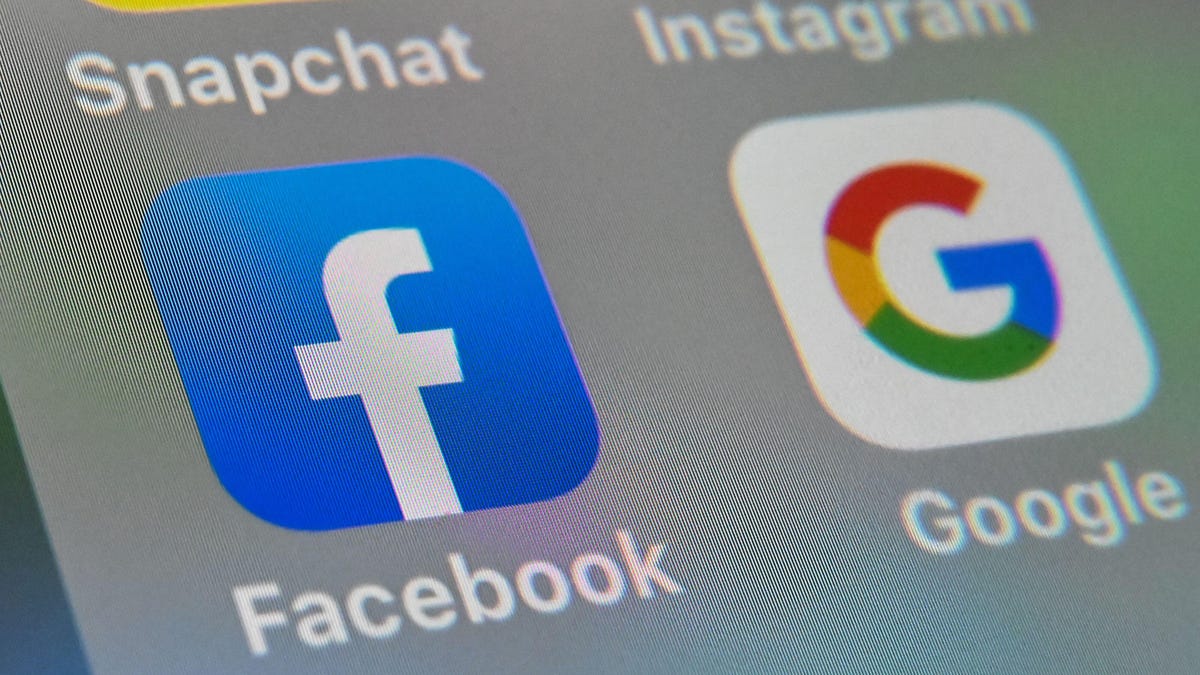Facebook, Google face criticism over political-ad bans ahead of Senate runoffs in Georgia
The Democratic Senatorial Campaign Committee called the ad bans "voter suppression." Facebook says its ad ban is temporary and helps safeguard US elections.

Facebook and Google banned political ads after Election Day on Nov. 3.
Facebook and Google banned political ads after Election Day to limit the spread of misinformation, but that's sparked criticism ahead of two Georgia runoff elections that'll likely decide which party controls the US Senate.
When both companies banned political ads, they didn't say when the prohibitions would end. Facebook initially said its ban was indefinite but in an update Wednesday to an earlier blog post, the company told advertisers to expect the prohibition to last another month. Google had said its political-ad ban would last at least a week but that it could go on longer. A Wednesday report by The Wall Street Journal said the search giant has told advertisers it's unlikely to lift the ban this month or in December.
The ongoing political-ad ban comes as two US Senate runoff elections are set to take place on Jan. 5. Georgia Republican Sens. David Perdue and Kelly Loeffler, both seeking reelection, each fall short of the 50% majority of votes needed to avoid a runoff. The outcome of the runoffs is critical because Democrats need to win both those seats to gain control of the Senate. Capturing those seats would result in a 50-50 tie in the Senate. Vice President-elect Kamala Harris could then break any tie votes in the chamber, a situation that would pave the way for Democrats to pass new policies.
The Democratic Senatorial Campaign Committee on Wednesday slammed the actions by Facebook and Google, calling the ad bans "voter suppression."
"Organic disinformation is the actual problem on these platforms, and continuing to ban ads is now actively harmful to organizations working to inform Georgia's diverse voters about the January runoffs. These ad bans are voter suppression plain and simple, they directly benefit Republican senators, and at a minimum there should be an exemption for ads in Georgia over the next two months," DSCC Executive Director Scott Fairchild said in a statement.
Facebook's director of product management, Rob Leathern, said in a series of tweets that the social network will continue to pause political ads for now.
"We know that people are disappointed that we can't immediately enable ads for runoff elections in Georgia and elsewhere. It's taken years to build the infrastructure that supports the Facebook Ad Library and ensure that political ads are transparent," Leathern said in his tweets. "We do not have the technical ability in the short term to enable political ads by state or by advertiser, and we are also committed to giving political advertisers equal access to our tools and services."
Google didn't respond to questions about whether it's considering an exemption.
The National Republican Senatorial Committee didn't immediately respond to a request for comment.

